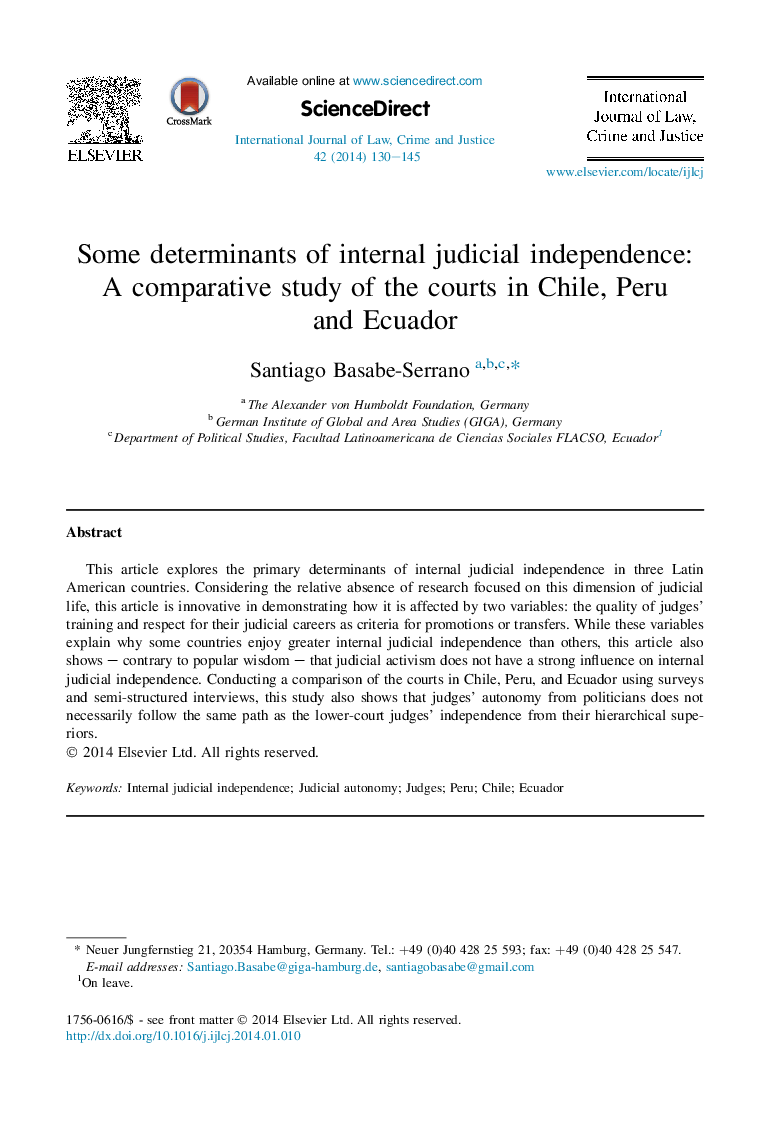| Article ID | Journal | Published Year | Pages | File Type |
|---|---|---|---|---|
| 1097951 | International Journal of Law, Crime and Justice | 2014 | 16 Pages |
This article explores the primary determinants of internal judicial independence in three Latin American countries. Considering the relative absence of research focused on this dimension of judicial life, this article is innovative in demonstrating how it is affected by two variables: the quality of judges' training and respect for their judicial careers as criteria for promotions or transfers. While these variables explain why some countries enjoy greater internal judicial independence than others, this article also shows – contrary to popular wisdom – that judicial activism does not have a strong influence on internal judicial independence. Conducting a comparison of the courts in Chile, Peru, and Ecuador using surveys and semi-structured interviews, this study also shows that judges' autonomy from politicians does not necessarily follow the same path as the lower-court judges' independence from their hierarchical superiors.
